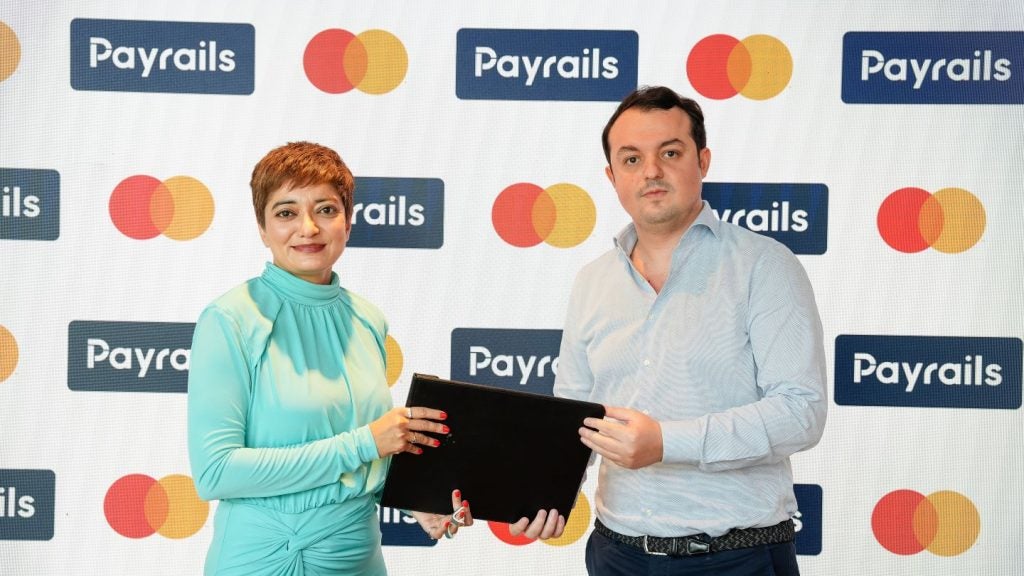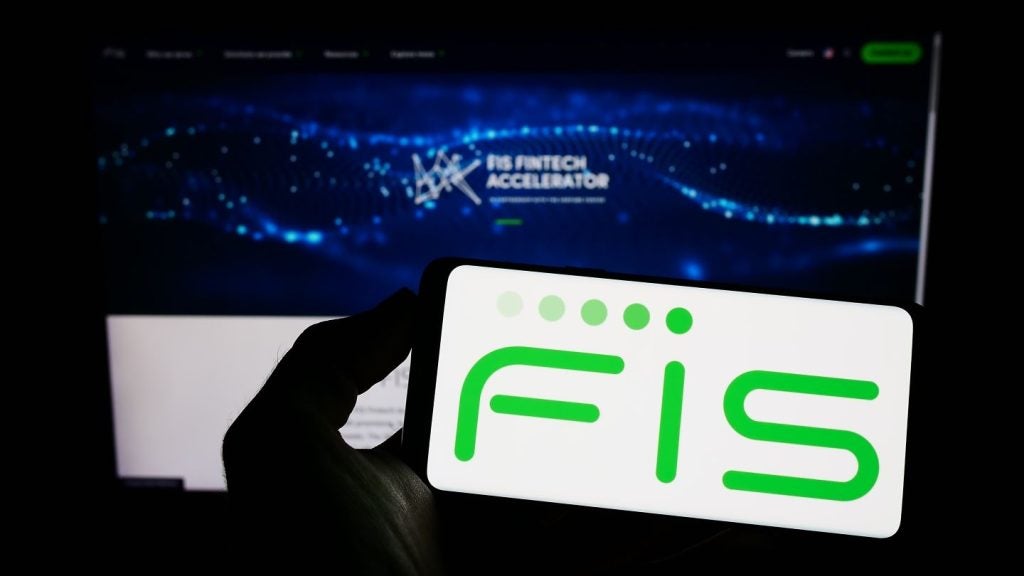will be purchasing Diners Club International in a move that will
transform it into an international network. Truong Mellor
investigates the motivations and potential outcomes of the deal and
the implications for both brands.
signing of an agreement with US banking giant Citigroup to acquire
Diners Club International, the world’s oldest credit card firm. The
deal is worth $165 million and will result, once integration is
complete, in a unified global payments network with increased
transaction volume as well as the worldwide acceptance of Discover
Network cards.
acquire the Diners Club International network with more than $30
billion per year in spend volume outside of North America by more
than 80,000 commercial and business clients. The acquisition does
not include Diners Club North America, which operates on the
MasterCard network.
dollar volume at the company’s third-party payments business,
leading to a 60 percent rise in revenue for the segment. The deal
also includes the Diners Club brand and trademarks, its employees
and agreements with 44 network licensees who issue Diners Club
cards and maintain an acceptance network consisting of more than 8
million incremental merchant and cash access locations in 185
countries worldwide.
vice-president of Discover Network, this global merchant acceptance
footprint is crucial for a travelling sector that is continuing to
expand.
overseas, we add volume to the Diners Club International network,”
he told CI, also highlighting there would be increased volume
through international Diners Club cardholders travelling to the US.
“There is synergy for our network, synergy for the international
network and global acceptance.”
to allow Discover cardholders to use their cards at merchants that
accept Diners Club cards across the globe, and Diners Club
cardholders to use their cards on the Discover Network in North
America. Both the active participants of Discover Network as well
as Diners Club International licensees are expected to benefit from
increased transaction volume resulting from broader acceptance,
while merchants outside of the North American market will benefit
from the spending of Discover Network cardholders while
travelling.
to be completed within three months, and the entire integration of
Diners Club network into its own to take an additional two to three
years.

New markets and sectors
The deal comes at a time when Discover is attempting to spread its
reach overseas beyond the US market, as well as break into the
large corporate spending sector, a segment that Diners Club has
traditionally been associated with ever since its inception in
1950.
economic environment, a business that is increasingly focused on
the corporate sector undoubtedly has a better risk/reward
portfolio, with the security of a larger employer to settle the
accounts of defaulting employees.
closes, we establish relationships with around 20 leading players
around the world,” explains Talwar. “Citigroup is one, and there is
also Santander and Bank of Austria in Europe as well as strong
local players in Asia and Latin America. There are quite a few
markets there – Japan, Australia, Brazil, Ecuador, Chile and some
South-east Asian markets – where Diners Club is quite a well known
and strong card brand.”
acceptance network through card acquiring relationships, but this
latest acquisition shows the company also has its eye on
diversifying the types of merchants in its network. According to
Talwar, the lack of international acceptance meant the company
missed out on certain opportunities with their proprietary US
business.
by corporate executives. Now, more and more international travel is
being done by a whole variety of population segments,” says Talwar.
“Therefore international opportunities are good across customer
segments. I think T&E is important across a variety of customer
segments.”
and corporate travel/entertainment accounts (T&E) demonstrates
Discover is willing to take on American Express, who have dominated
this segment of the market almost exclusively for some time, as
well as Visa and MasterCard. Outside of the US market, Diners Club
has a relatively strong merchant acceptance level in the T&E
sector.
research consultancy firm Celent, says: “Once you have built up
acceptance in the T&E segments around the world, this allows
Discover to proactively target and market to those companies that
are looking for a corporate type of card, which is basically
untapped by Discover.”
for Discover to address some of the existing gaps in its current
business along two dimensions, according to Gillen
dimension, where Discover is typically weak outside of the US. Then
across the T&E dimension, which is a whole class of merchants
where Discover is not particularly strong either,” he
explains.
have a symbiotic relationship to each other, as the corporate
T&E sector is increasingly global in focus. Somewhat
ironically, one of Discover’s overseas partners JCB has struggled
to attract corporate clients, as Japanese businesses know that the
erratic acceptance levels for JCB cards outside of Japan (despite
its alliance with Discover in the US) means it will not serve as a
comprehensive T&E solution. Talwar hopes that the Diners Club
acquisition will help synergise Discover’s strategic partnerships
with JCB and China UnionPay.

How well do you really know your competitors?
Access the most comprehensive Company Profiles on the market, powered by GlobalData. Save hours of research. Gain competitive edge.

Thank you!
Your download email will arrive shortly
Not ready to buy yet? Download a free sample
We are confident about the unique quality of our Company Profiles. However, we want you to make the most beneficial decision for your business, so we offer a free sample that you can download by submitting the below form
By GlobalDataChallenging times
Discover, which became independent from investment bank Morgan
Stanley last year, has struggled in the market recently. The
company’s profit for the first quarter of 2008 fell by 65 percent
to $81.2 million from its first quarter 2007 level, and it has
recently jettisoned its UK card business Goldfish after incurring a
$422 million writedown due to market disruptions.
rising default levels in the US cards market. The company has at
present set aside $305.6 million for loan losses, a quarterly
provision that is more than twice the level it was a year
ago.
troubles in light of the US subprime meltdown and the ensuing
credit crunch. The bank is undertaking a comprehensive review of
its retail business following the recent appointment of Terri Dial
to head up the group’s US retail operations, and the appointment of
Steven Freiberg as global head of cards. Dial’s appointment by
Citigroup is the latest of several moves to restructure the bank at
a senior level under new chief executive Vikram Pandit, who
replaced Charles Prince after he was ousted in December 2007.
costs and increase overall efficiency within Citigroup’s retail
portfolio, following heavy losses related to sub-prime mortgages
and other bad debt. The bank’s full-year profit fell by 51 percent
to $4.1 billion in 2007, and industry observers are expecting more
writedowns.
International payments network to Discover is consistent with
Citi’s efforts to streamline its businesses to focus on what Citi
does best,” said Ed Eger, head of international cards for the
banking group.
businesses around the world. At the same time, we are excited about
the opportunity to work with a long-term partner that has the
commitment and experience to expand the acceptance network of such
a highly regarded franchise.”

Discover’s plans for the future
Sanjay Sakhrani, an equity analyst at Keefe, Bruyette & Woods,
told CI: “Citi, which is the largest licensee by volume, plans to
remain a significant long-term issuer on the Diners Club network
through a multi-year agreement. Discover does not intend to issue
cards or extend consumer credit in international markets as a
result of this acquisition.
networks to take about two to three years, which will allow the
cardholders of both networks to also use their cards on either
network. Diners Club International transactions in the US currently
run on the MasterCard network. This is expected to be transitioned
over to Discover in 24 months. Recall that Discover is currently
focused on its merchant acceptance strategy in the US and expects
to have merchant parity in the US with the larger networks by
mid-2009.”
eventually move towards the issuing side of its newly acquired
overseas business, though it is difficult to predict a timeframe
for this development. According to Gillen, the company is also
currently very busy on the merchant acceptance side of the business
in its domestic market as well.
moment,” he says. “Outside of the deal with Diners Club, at the
same time Discover is trying to expand its US general merchant
acceptance level. They are signing deals with acquiring banks in
the US. They are also trying to launch more varied products, for
instance they are trying to get into the prepaid space. They are
really trying to catch up with the three other major brands in the
US.”
that Discover was purchasing with this deal more than anything
else. At present, Diners Club is more valuable from an acceptance
point of view than an issuing one. Despite its prestige, it would
appear that Diners Club is brand name of the past. Either Discover
or Citigroup would have to divert a significant amount of resources
to build the brand back up on the issuing side of the business,
which seems unlikely at this point.
play,” stresses Talwar. “We will partner with international banks
and work more closely with them around the world. Discover itself
is not going to be issuing internationally for now.
perspective, as it means we get an opportunity to participate in
global commerce without taking on international credit
risk.”







